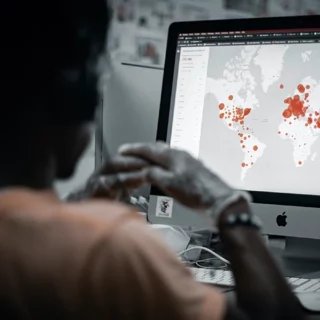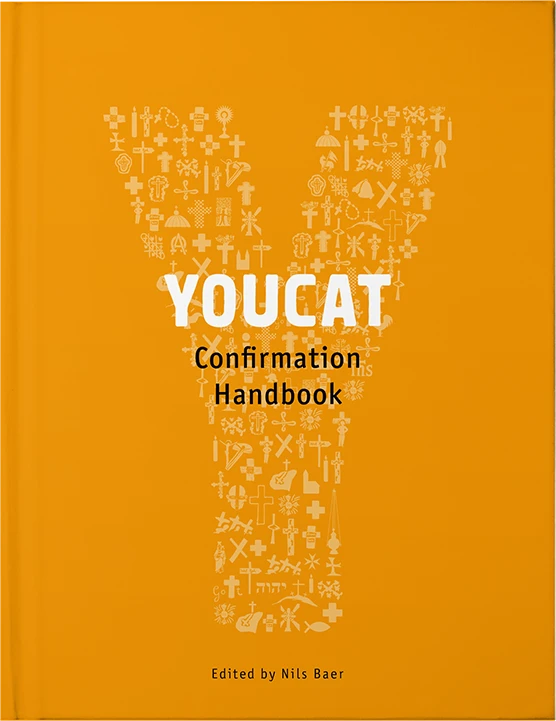

Credopedia
War and Peace
The following questions and answers are taken from the DOCAT book — Social doctrine of the Catholic Church.
War and Peace
Why we need God in order to reach a lasting, fundamental peace? Why the Church must be a peacemaker and what she can contribute to the de-escalation of conflicts? Why radical pacifism does not resolve conflicts and when war may be waged as a last resort? You’ll find the answers here.
How do war and violence come about?
Many wars come about because of long-standing hatred between peoples, because of ideologies, or because of the desire of individual men or groups for power and wealth. People also resort to war and violence, though, out of despair, for instance when they have no political voice or when they are suffering from hunger, poverty, oppression, or other injustices. When a few rich people live at the expense of many poor people, this inequity often leads to outbreaks of violence.
How does the Church regard war?
War is the worst and most momentous failure of peace. Therefore, the Church again and again condemns the “savagery of war” (cf. Vatican Council II, GS 77, and also CCC 2307–2317). “Because of the evils and injustices that all war brings with it, we must do everything reasonably possible to avoid it” (CCC 2327). However, “as long as the danger of war persists and there is no international authority with the necessary competence and power, governments cannot be denied the right of lawful self-defense once all peace efforts have failed” (GS 79, CCC 2308). War is always a “defeat for humanity” (John Paul II, Address to the Diplomatic Corps, January 13, 2003).
What preventive strategies are there for avoiding war and violence?
The fight for peace can never consist solely in disarmament or the violent suppression of conflicts. Violence is often caused by lies and usually by injustice. Unjust structures lead again and again to exploitation and misery. Lack of participation and curtailed freedom express themselves in violent resistance. That is why war can be avoided long-term only when free societies are formed, in which just conditions prevail and all human beings have prospects for development. Sensible developmental aid also helps to avoid war.
What has to be done if political actors cannot maintain peace by themselves?
Of course Catholic social teaching is aware that States often no longer have suitable means of defending themselves effectively and of maintaining peace. Besides developmental aid, the Church counts on the work of regional and international organizations to promote peace and to establish trust between nations. Often it has proved to be very fortunate that the Catholic Church has an international structure and cannot be co-opted nationally. Thus she has the freedom to make independent judgments and to encourage Christians living under unjust regimes.
What sort of sanctions should there be in the case of a conflict or when there is danger of war?
Sanctions of the international community are significant measures that can be taken against States that oppress parts of their own populace or endanger the peaceful coexistence of nations. The goals of these measures must be formulated clearly. The sanctions must be reviewed regularly by the competent organs of the international community to evaluate objectively the actual consequences thereof for the civilian population. Their real purpose is to pave the way for negotiations and talks; sanctions must, however, never be used to punish an entire population directly. Thus, for example, a trade embargo should be for a limited time and may not be justified if it becomes clear that everyone without distinction is affected by its consequences.
What should happen if war begins, despite everything?
Wars of conquest and aggression are immoral in themselves. When a war breaks out, the responsible authorities in the State being attacked have the right and the duty to organize a defense, even by force of arms. This is why States can have armed forces and possess weapons, so as to protect their population from external attacks. Likewise, Christians, too, can be soldiers, inasmuch as the military forces serve to defend the security and freedom of a country and have peacekeeping functions. Enlisting children and youths as soldiers is a crime. Their deployment in armed forces of any sort whatsoever must be stopped, and the former “child soldiers” must be reintegrated back into society.
What are the conditions for a “defensive war”?
Defense by force of arms is justified only under a few conditions that are to be applied narrowly. Whether these conditions are fulfilled must be decided by those institutions which are “in charge of preserving the common good”. Four criteria are considered especially important:
- The damage by the aggressor must be “lasting, grave, and certain”.
- There are no other means left of preventing or putting an end to the damage inflicted. All available peaceful ways of resolving the conflict must be exhausted.
- The consequences of the defensive use of arms must not be worse than the damage inflicted by the aggressor. Here the devastating consequences of the use of weapons of mass destruction must especially be taken into consideration.
- The defense must have a realistic chance of success.
Are there limits to the use of force in the case of a defensive war as well?
Even when self-defense by force of arms is justified, not all means may be employed to strike back at the aggressor. In all circumstances, the “traditional limits of necessity and proportionality” must be observed. This means that in a defense against an unjust attack, only as much force may be used as is absolutely necessary to achieve the purpose of self-defense.
What should soldiers bear in mind while at war?
Soldiers are obliged not to obey orders that violate international law. For example, a soldier may never participate in the mass shooting of civilians or prisoners of war, even if his superiors order him to do so. In such a case, he cannot rely on the excuse that he was only following orders. He is responsible for his actions.
What about the victims of war?
Innocent victims who could not defend themselves against an attack must be protected in all circumstances. This protection applies to the civilian population in general. The parties waging war are also responsible for refugees and national, ethnic, religious, or language minorities. The attempt to wipe out entire population groups through genocide or “ethnic cleansing” is a crime against God and against humanity. Victims of WarThe statistic annual report of the UNHCR, Global Trend, notes in late 2013 that more than 51.2 million people were refugees—that is six million more than the year before. The total number of refugees breaks down into three groups: 16.7 million people had to leave their homeland, 33.3 million were in transit within their country, and 1.2 million people were seeking asylum somewhere in the world. Every other refugee was a child.
What must be done when there is a threat of genocide?
The international community has the moral obligation to intervene in favor of groups whose survival is endangered or whose fundamental rights are being violated massively. In such an intervention, international law must be observed strictly and the principle of the equality of States must be observed. In this connection, the Church has spoken favorably of the International Criminal Court, which is supposed to prosecute those who are responsible for especially serious acts: genocide, crimes against humanity, war crimes, the crime of a war of aggression.
Should the arms trade be forbidden?
The Church is committed to the goal of a “general, balanced, and controlled disarmament” (John Paul II, October 14, 1985), since the enormous worldwide increase of weapons presents a considerable threat to stability and freedom. The principle of sufficiency—every State may possess only the means required for its legitimate defense—must be kept in mind both by the States that buy weapons and also by those that manufacture or deliver weapons. Any excessive accumulation of weapons and universal trade in them are morally unjustifiable. Trade in so-called light weapons must also be strictly controlled by the States.
When are weapons of mass destruction permitted?
The use of any weapon that causes more than individual and proportionate harm to civilians is immoral. By definition, then, the use of weapons of “mass destruction” is forbidden. The Church expressly rejects the so-called “logic of deterrence”. The indiscriminate destruction of cities, countries, and populations through biological, chemical, or nuclear weapons of mass destruction is a serious crime against God and humanity.
Are there any weapons that must not be used under any circumstances?
The Church demands the prohibition of weapons that inflict excessively traumatic injury and indiscriminately strike anyone, for example anti-personnel land mines, which cannot be limited to military targets and do damage even long after the end of hostilities. The international community must make efforts to clear mines.

YOUCAT Digital
Discover our digital products, which will help you to grow in faith and become missionaries yourself.







